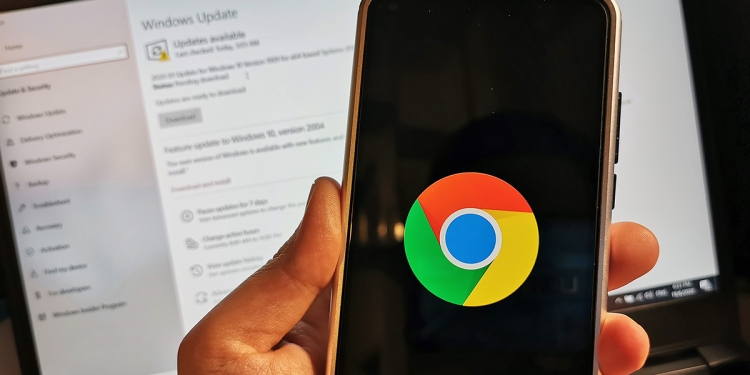It is not a secret that Google’s Chrome browser consumes a lot of memory on Windows machines. Fortunately, those days may be behind us as the latest Windows 10 May 2020 update (20H1) will bring a new feature that will solve this problem once and for all.
According to a story on Windows Latest, the update will introduce a change called ‘SegmentHeap’. Without getting into technical details, the method is said to reduce the overall memory usage of Win32 apps, like Google Chrome, on the latest version of Windows. The change will be available to developers in Windows version 2004 or newer.
Microsoft is already using ‘SegmentHeap’ to improve the performance of its Chromium-based Edge browser. Early tests with Microsoft Edge using the method have shown it reduces memory consumption by up to 27%, resulting in a better overall experience. But it must be said that individual device performance will vary based upon their configuration and usage.
Google likes this idea too and it will be adopting it for Chrome. In a commit, Chrome engineers said that implementing the change would save “hundreds of MB in the browser and Network Service utility process” on some machines. It concluded that results may vary but machines with multiple-core processors stand to gain the most benefit.
There is however one roadblock. Google would need to build Chrome with Windows 10 Build 19041.0 SDK. According to the Google engineer, this updated SDK support is currently blocked due to mysterious build failures.
But before you get the Windows update, you should know that this update is reported to have caused some issues for Chrome users. Following the update, users reported that Chrome stopped syncing, deleting all cookies and would sign users out. Google is still investigating this problem, but you may want to hold back on getting the May update.
How do you do that? Just go to Settings> Update & Security> Pause Updates. Pausing updates delays any Windows updates for up to 35 days. Let’s hope that by then Google would have managed to patch this problem up. Until then Chrome users will have to wait a little longer for the fix to the browser’s memory issues.
[SOURCE]








